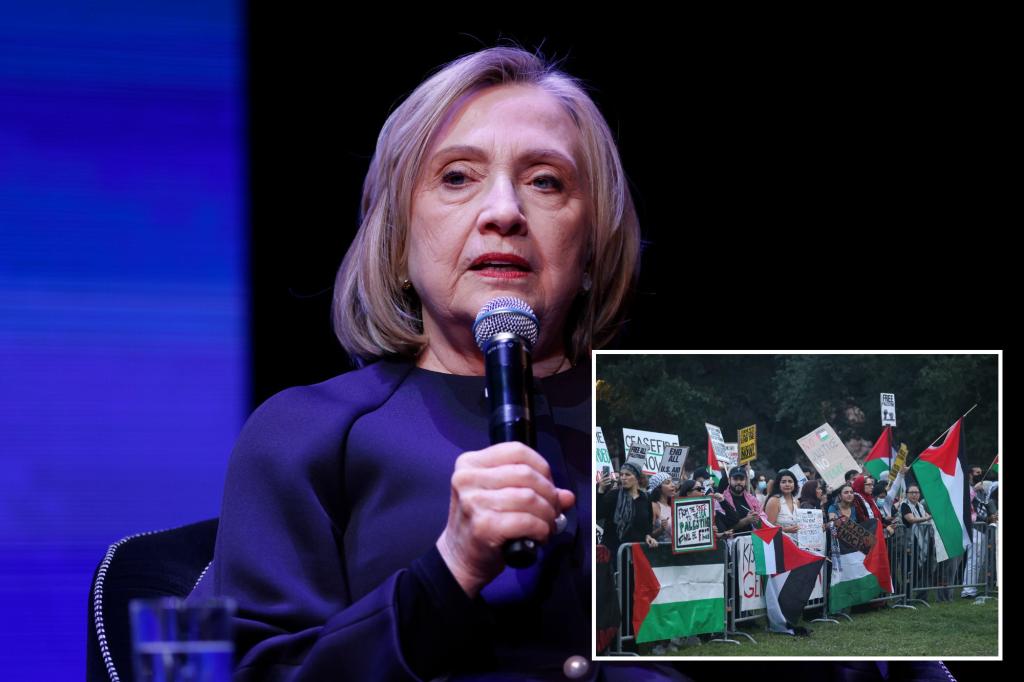Former Secretary of State Hillary Clinton faced student protests during a visit to her alma mater, Wellesley College, where she was receiving the honor of having a college building named after her. Clinton was attending a women-led democracy summit on campus when protesters lined up to harass attendees. Local news outlets reported that angry students circulated pamphlets around campus calling Clinton Wellesley’s “most beloved war criminal” with “blood on her hands.” While school administrators acknowledged the protest, they did not condemn it, instead advising activists to follow the demonstration policy and the Code of Student Conduct to ensure their safety and that of the community.
This incident was not the first time Clinton had faced protests during her visits to American universities. Just days prior to the Wellesley event, protesters at Columbia University had interrupted her appearance by calling her a “war criminal.” Despite the demonstrations, Clinton remained outspoken during a recent appearance on the “Tonight Show” with Jimmy Fallon. Responding to a question about voters who were unhappy with the choice between former President Trump and President Biden, Clinton urged people to “get over themselves” and emphasized the importance of the upcoming election. She highlighted the differences between the two candidates, expressing her support for Biden as someone who is effective, compassionate, and cares about people, while criticizing Trump for his criminal charges and lack of regard for democracy.
Clinton’s comments on the “Tonight Show” echoed the sentiments she shared during the women-led democracy summit at Wellesley College. She emphasized the significance of the upcoming election as an existential question that would determine the kind of country and democracy the United States would have. Clinton criticized Trump, his enablers, and allies for their clear intentions and urged voters to pay attention to the stakes involved. Despite the protests and controversies surrounding her, Clinton remained firm in her belief that the upcoming election was a crucial moment for the country’s future and the values it stood for.
The protests at Wellesley College reflected the polarized opinions surrounding Hillary Clinton and her political legacy. While some students viewed her as a war criminal with blood on her hands, others, including school administrators, recognized her contributions to politics and leadership. The demonstrations highlighted the ongoing debates within the younger generation about the actions and decisions of prominent political figures. As the election approached, tensions continued to rise, with both supporters and critics of Clinton voicing their opinions and engaging in activism to promote their perspectives.
Throughout her visit to Wellesley College, Hillary Clinton remained composed and focused on the importance of the upcoming election. Despite the disruptions caused by protesters, Clinton continued to address the challenges facing the country and the need for voters to be informed and engaged. Her interactions with students, administrators, and the media showcased her commitment to advocating for democracy and highlighting the consequences of the choices that lay ahead. As the political landscape continued to evolve, Clinton’s presence and speeches served as a reminder of the complexities and divisions that existed within American society.
As the events at Wellesley College and the protests surrounding Hillary Clinton’s appearances demonstrated, the political climate in the United States remained contentious and polarized. The reactions to Clinton’s visit reflected the larger debates and disagreements that characterized the country’s discourse leading up to the election. Despite facing criticism and challenges, Clinton remained steadfast in her beliefs and her advocacy for civic engagement and democratic values. The protests at the women-led democracy summit underscored the importance of dialogue, activism, and participation in shaping the future of the nation, highlighting the diverse perspectives and priorities of individuals within the American political landscape.


